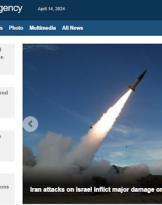Europe continues to silently assist the migration process that from Africa brings hundreds of thousands of desperate people to the old continent. A small part escapes from wars or dictatorial regimes, others leave Africa for economic reasons, others to try to rejoin family members who preceded them in time.
A flow that has been going on for some time and that directly involves Italy, the southern border of Europe, engaged first with the Mare Nostrum operation and now always in the front line although with the competition of military ships of Great Britain, Germany, Iceland, France, Norway, the Netherlands, Spain, Portugal, Lithuania and Malta, authorized to arrive in Libyan territorial waters under the EU Triton operation. About 17 ships flying different flags that actually project their national sovereignty close to Libya, to embark drifted refugees in the Mediterranean and then disembark them in Italian ports, delegating to Italy the management of reception according to an extreme interpretation of what is expected by the European Convention "Dublin III".
A Treaty considered "milestone" in the construction of the Common European Asylum System and which refers to general principles similar to those of the old Dublin Convention of the 1990 and Dublin II. In particular, each asylum application must be examined by only one Member State and the competence for examining an application for international protection falls first and foremost on the State that played the major role in relation to the entry and residence of the applicant in territory of the Member States, with the exception of exceptions (COM 2008 / 820, 03.12.2008, page 3).
On the basis of this content, Italy, "European outpost of migrants' port", must manage reception, activate recognition procedures, repatriation procedures, carrying out tasks that are not easily delegated by Europe with an interpretation of Dublin that should be reviewed in the light of the contingent reality in which Triton is articulated.
A good number of refugees arrive on the national territory after passing on the deck of military ships of other States, which according to international law and the sea are in effect an integral part of the country of belonging and constitute, in this case, real " "Welcoming" reception centers that have nothing to do with the Italian sovereign territory.
Warships that maintain their complete national identity and immunity (sovereign immunity) on the high seas, during transit through territorial waters or the stay in the internal waters of another state with exemption from detention, inspection, taxes and the application of foreign laws. In short, a complete immunity from the jurisdiction of any State other than the flag state (UNCLOS 95 and 96), even exempted ship from exhibiting the "Courtesy Flag" once it docks in a port of a host nation.
Naval forces that during navigation have an exclusive and polyvalent role, practicing Law, Strength and Diplomacy, as a total expression of the State of belonging both as a territorial entity and as a juridical entity. Real "pieces" of national territory projected onto the sea, which as such should be subject to the rules and conventions ratified by the Member States of the European Union, first of all the Dublin III.
That said, it is not clear, therefore, why the military ships of other European nations that compete for the Triton operation do not apply "Dublin" once they have embarked the refugees saved at sea. The Convention, in fact, clearly establishes the obligation of managing reception linked to territorial sovereignty extending it also to airport transit areas where Article 15 Dublin III provides that if "the will to request international protection is manifested" (and not plus "when an asylum application is filed") in the international transit area of an airport of a Member State, that State is the competent one.
An article of the Convention which more than others clearly indicates that one of the main objectives of "Dublin III" is to prevent asylum seekers from submitting applications in several EU Member States (asylum shopping) and to reduce the number of applicants transported from one state to another, as is the case when a military ship from the United Kingdom, rather than French or German, disembarks migrants in an Italian port delegating to Italy the application of the Dublin Convention.
The ship involved in Triton is largely military and therefore to all effects expression of the national territory to which it belongs. Once embarked the refugees should therefore manage them as if they had landed in Lampedusa rather than in Malta or Normandy.
Therefore, it is not understandable why the implementing rules of the new EU directive on the reception of 26 on June 2013 and the relative implementation regulation (604 / 2013), the normative pillars of the European system of entry, refuge and refugee expression of common procedures valid throughout the EU.
It is not clear, therefore, why Italy can not hijack in Germany or France migrants disembarked in Sicily, while a French or German military ship can "unload", instead, on the Italian territory migrants embarked on their military ship " playing the dominant role in relation to the entry and residence of an applicant on the territory of the Member States ". Portion of European territory which, in compliance with the Dublin agreements, should be obliged to give international protection to those entitled and at the same time to proceed with the repatriation of "economic migrants" and illegal immigrants.
Perhaps the EU and the High Representative for European Foreign Policy Federica Mogherini should expect a more careful application of the European treaties and the national media to give greater emphasis to these inconsistencies!
Fernando Termentini
.jpg)
(photo: Frontex)












